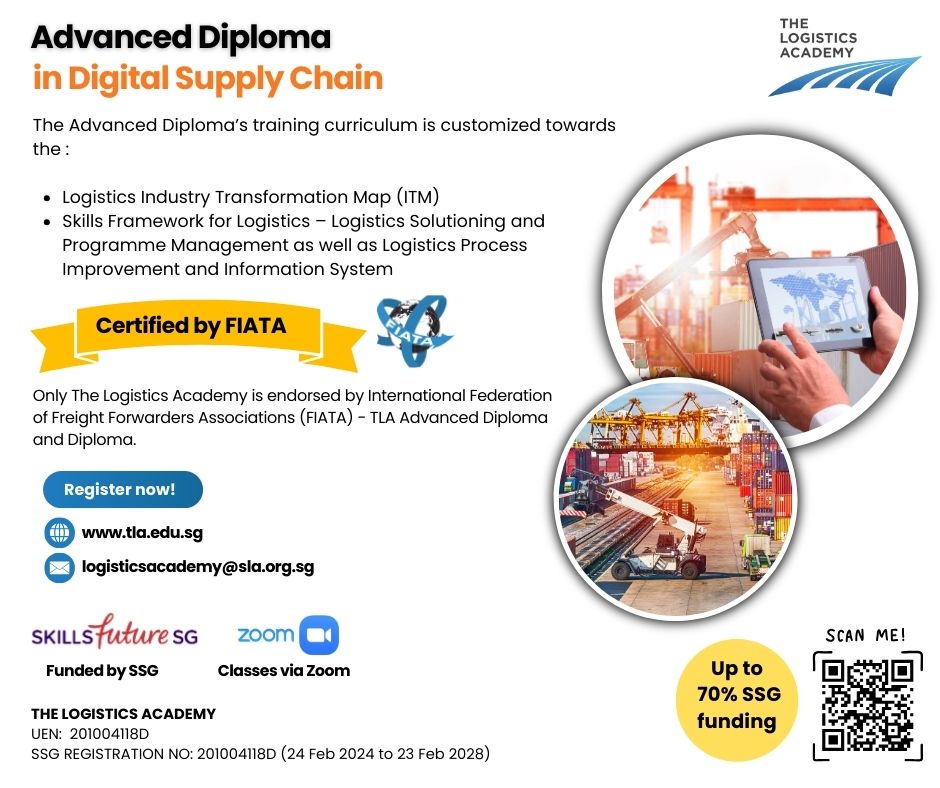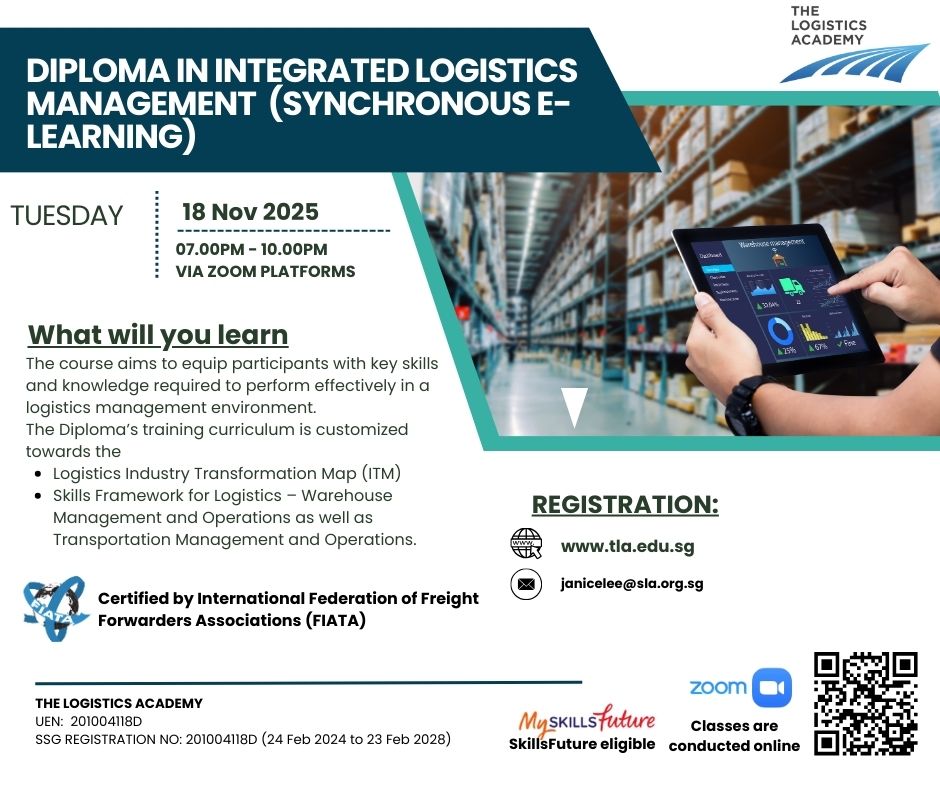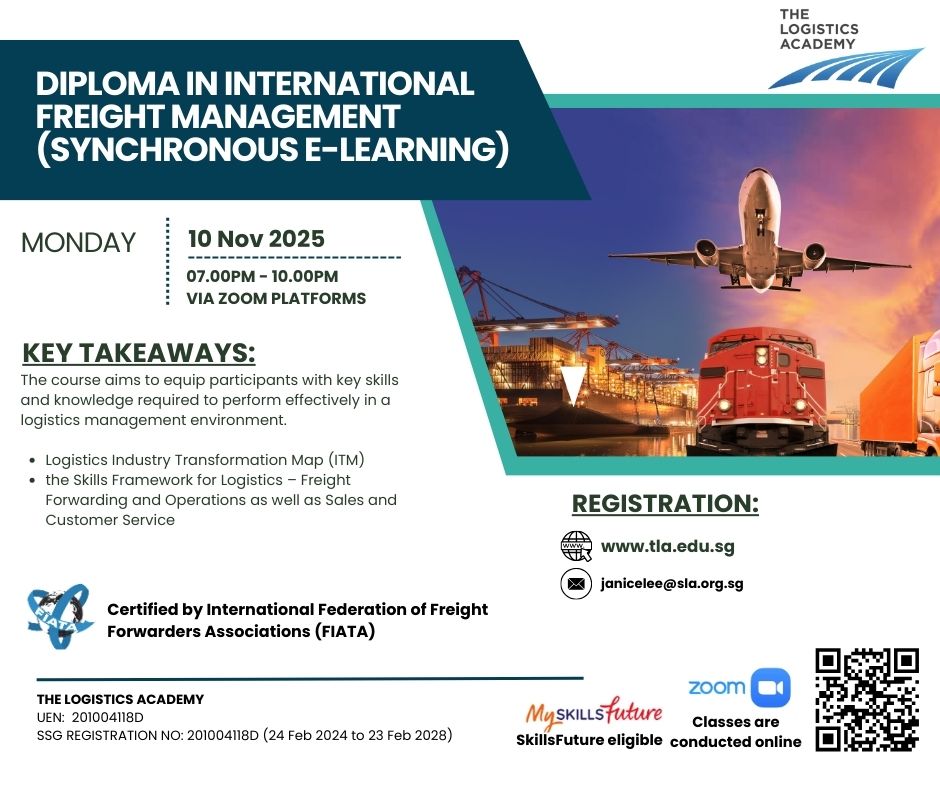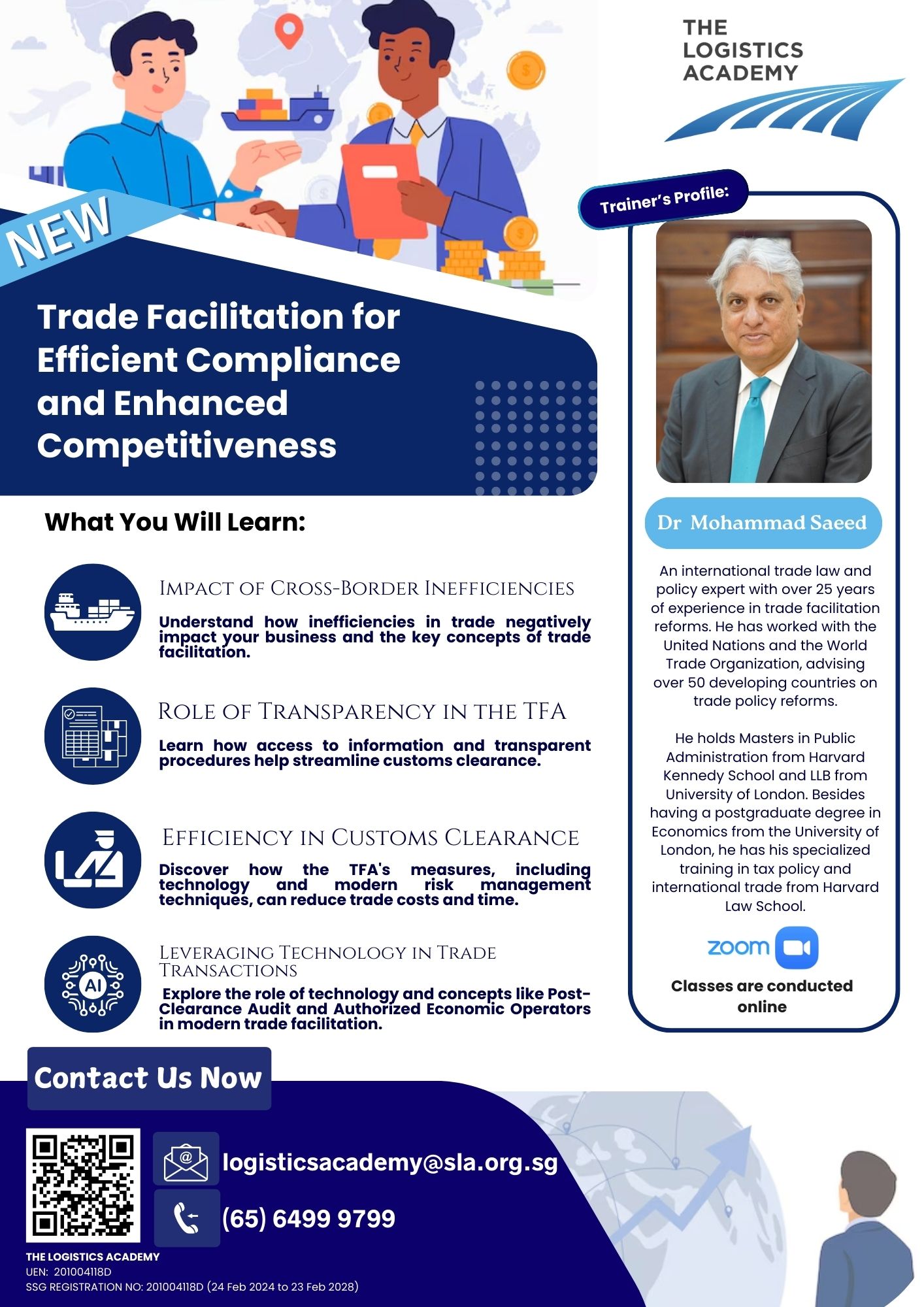Specialist Certificate in Cold Chain Management (Pharmaceuticals & Medical Devices)

- 01 – 03 Oct 2025, Intake : 22
- Next year’s Training Schedule — click here for dates (available end Dec or next Jan)
Find out how our participants rate our programmes via TRAQOM here
Read what our participants have learnt from this course…

The lecturer is highly experienced in this field and he provided a lot of relevant and insightful case studies which aids our understanding in the subject.
Heng Ai Ling, Managing Director, T. C. L. Pte Ltd

After the course, I am able to understand the key aspects of cold chain management and also I am more confident to attend to customer enquiries with a much better clarity.
Unnikrishna Menon Sreekanth, Assistant General Manager, C. Pte Ltd
Objectives
In the wake of COVID-19, the biopharma and health sciences industry in Asia is undergoing rapid transformation. Leaders who are able to adapt to change create innovative solutions to problems.
Flaws in the cold chain supply chain were exposed by COVID-19, which has an impact on international trade. Manufacturing, distribution, and customer service have all been impacted by problems in the supply chain. Many large companies have recently rethought their approaches to manufacturing and sourcing in other countries. Multinational corporations are incorporating resilience and agility into their production and supply networks despite the high cost. In order to lessen supply chain risks associated with relying on a single region, companies are adopting a more globally diversified strategy.
The pharmaceutical and logistics industries gain from these innovations. As of 2015, the cold chain packaging and transportation market is expected to be worth $8.7 billion. Temperature- and security-controlled spaces are required for the storage and transport of medications, clinical trial supplies, and product test samples. Cold-chain logistics companies are still used by the pharmaceutical industry to handle the management of perishable goods. For those in need of third-party logistics services, 17 of the world’s top 25 3PLs can be found in Singapore.
A company’s success today depends in large part on its ability to understand and properly manage its cold chain supply and distribution.
Designed For
The following positions may find the course to be beneficial and of great use as well as logistics professionals working in the cold chain and related services with a focus on the pharmaceutical and medical device sector :
- Senior and mid level managers involved in cold chain design
- Operations and logistics managers
- Warehouse managers and supervisors
- Transport managers and supervisors
- Third-party logistics personnel looking to improve their current operations, or providing cold chain services
- Managers and executives in pharmaceuticals industry
- Quality Assurance managers
- Consultants
Coverage
1. Overview of Cold Chain – Roles and Importance of Cold Chain Management in Food and Pharmaceutical Supply Chains
- Importance of Cold Chain Management in Food & Pharma Supply Chain
- What is Cold Chain Management?
- What is used in Cold Chain technology?
- Where & Why is Cold Chain Applied?
- How Cold Chain in Healthcare is being applied?
- The conclusion of a cold chain application?
- Role of Cold Chain Practitioners.
2. Cold Chain Logistics Sector
- Is there a promising future ahead?
- How the Cold Chain Leads to Innovation
- Recent Innovations in the Cold Chain
- Automation at the Coldest Temps
- Product Flow in Cold Chain Facilities
- Information Tracking of Cold Products
- What the Future of the Cold Chain Has in Store
3. Importance of Cold Chain Management in Medical and Pharmaceutical Supply Chain
- Cold Chain Pharmaceutical Products
- Review of Regulation, Standards, and Code of Practice HACCP, SS668 & 21 CFR
- 21 CFR Part 210. Current Good Manufacturing Practice in Manufacturing Processing, Packing, or Holding of Drugs.
- 21 CFR Part 211. Current Good Manufacturing Practice for Finished Pharmaceuticals.
4. Cold Chain in Transportation for Medical and Pharmaceutical Products
- Objectives of Cold Chain Transportation
- Global Transportation Modes – Sea & Air
- Passive Shipping Solutions
- Active Shipping Solutions
- Temperature Monitoring and Tracking
- Why You Should Only Trust Professionals to Transport Pharmaceuticals
5. Cold Chain in Warehousing
- Objectives of Cold Chain Warehousing
- Overview of Warehousing Activities
- Cold Chain Storage Equipment
- Cold Chain Storage System
- Temperature Monitoring
- Key QMS Requirements
6. Role of 3PL Service Provider
- Defining 3PL
- Reasons for Outsourcing
- Beyond 3PL
- Selecting a 3PL Service Provider
7. What is Quality Management System (QMS)/Product Traceability & Product Recall
- What is QMS
- What is Good Distribution Practice (GDP)?
- What is Food Manufacturing Practice (GMP)?
- GDP for Medical Devices (GDPMDS) Or SS620.
- Product Traceability for Food and Pharmaceutical Products
- Products Recall Procedure in Food and Pharmaceuticals
- Disposal of Pharmaceutical Recall Drug
- FDA’s Role in Drug Recall
8. Legislation in Cold Chain
- Why is Legislation needed
- Health Sciences Authority (HSA)
- Types of Licenses / Certifications
9. Innovations in Cold Chain
- Design & Technology of warehouse
- Internet of Things (IoT)
- Digital Technologies and Automation Innovation in Cold Chain Management
- Packaging, Data Systems, Continuous Temperature & Status Monitoring
- Risk Assessment, Mitigation, and Cold Chain Route Planning
- De-carbonising the last mile: competitiveness and flexibility
- Trends in last-mile delivery: pick-up points, hubs and lockers
Lecturer

Johnny Chua was formerly Teleflex Medical Group’s Operation Director (Asia Pacific). He has numerous years of logistics experience and has held a number of top roles along the logistics value chain. A self-motivated, high achiever who makes major contributions to end-to-end supply chain management and company strategy creation. 37 years of extensive international assignment and working experience in a variety of sectors including Medical Devices, Pharmaceuticals, Animal Health (Feeds), FMCG, Telecommunications & Electronics, Freight & Transportation, amongst others.
Fees
| SLA Member | Non-Member | Self-Sponsored | |
|---|---|---|---|
| Course Fee | $720 | $900 | $900 |
| GST | $64.80 | $81 | $81 |
| Application Fee (inclusive of GST) |
$32.70 | $32.70 | $32.70 |
| Total Fee (payable to TLA) | $817.50 | $1,013.70 | $1,013.70 |
Payment
Payment will only be required after the course is confirmed.
(The status of the course would usually be advised one (1) month before the course start date.)
Payment mode (retail payments facilities are not available) :
Overseas – Telegraphic transfer
Local – Bank transfer or Corporate PayNow
Duration
Day Class : 24 hours, 3 days, 9am – 6pm
Certification
A Certificate of Achievement will be awarded upon successful completion of the course with 75% attendance.



